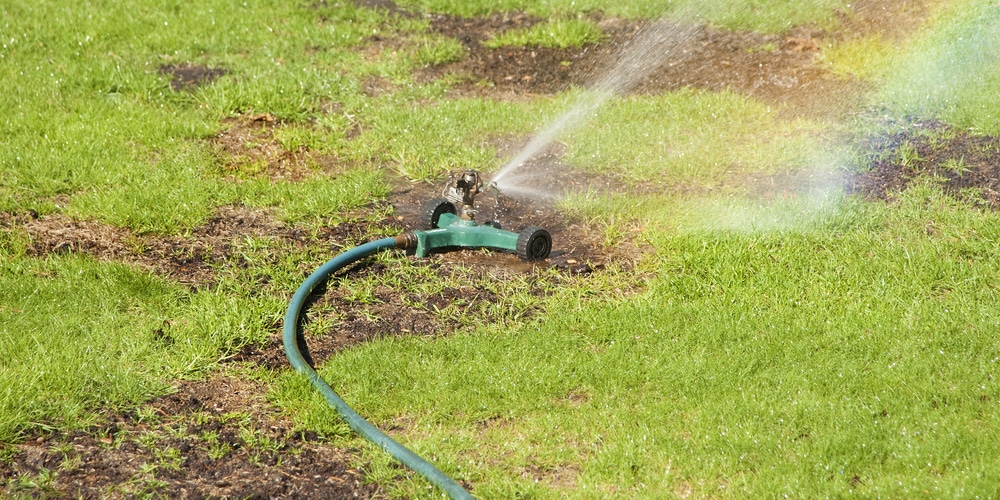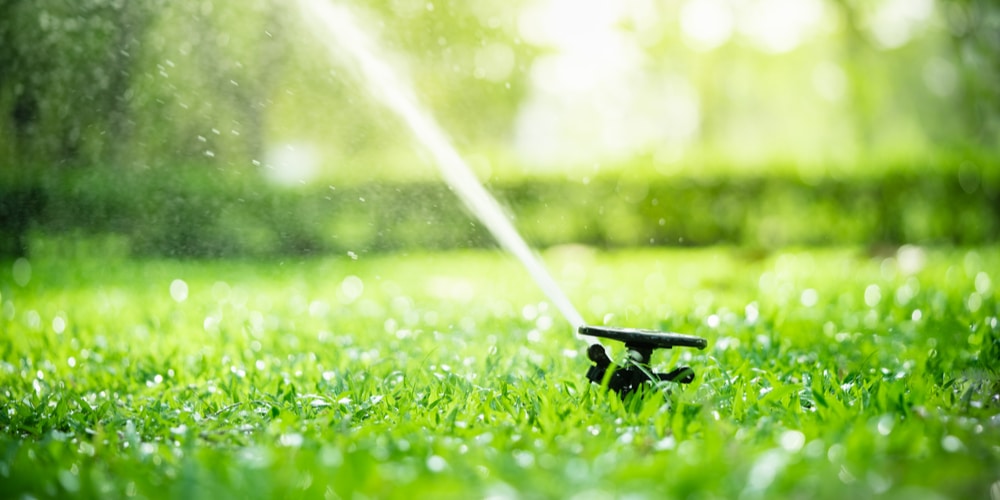Once Fall arrives, you may be wondering whether your lawn still needs to be watered? The chances are that you’ve got into the habit of regularly watering your lawn throughout the summer months. Plenty of water will help you keep your grass lush, green, and healthy-looking. Let’s look at when to stop watering grass in the Fall and how to prepare your lawn for the winter months.
Grass needs to be watered regularly in the spring and summer months as the heat can dry your soil out. It’s imperative to irrigate your lawn during a drought or if you live in a very hot and humid climate. Heat can scorch your grass, and if it’s not watered enough, it can wither and die.
You Need to Water Your Grass in the Fall

This article assumes you live somewhere with four seasons. If you would still water your winter grass in Arizona, for instance, since it never gets cold enough for growth to stop.
At the beginning of Fall, temperatures will start to fall, and the days will begin to get shorter. For most plants, their growing season will come to an end, and your lawn’s grass will slow down. There will also be a lot less heat than during the summer months, which will mean that water will evaporate from your soil at a much slower rate. Your grass will need to be watered slightly less as it won’t need to absorb as much water on cooler days. Don’t completely stop watering your lawn. There are still warm days in many places, and your grass should be provided will a reduced amount of water regularly.
It’s essential to look after your grass during the Fall to keep it healthy. A healthy fall lawn will mean that your grass is more likely to be resistant to cold and survive even during the harshest winter.
When to Stop Watering Grass for the Year
It can be hard to determine when to stop watering your lawn. The exact time of year when the temperature gets too cold to water grass will depend on the climate you live in. Most gardeners can slowly reduce watering throughout the Fall. Don’t stop watering your grass abruptly. Here are some things to consider before you stop watering your lawn.
If your live in an area that gets rain during Fall, you may be able to stop watering your lawn. As a general rule, you can stop watering entirely if you’ve had at least an inch of precipitation in a week. Be careful not to overwater your lawn during the Fall, or fungal diseases may develop. Many homeowners continue to water their lawns during Fall until the first frost.
During times of warmer weather, or if the areas dry, you may find that you need to continue watering a few times a week throughout Fall. If you’ve recently planted a new lawn, have overseeded patch areas, or laid new sod, continue watering to allow your young grass seedlings to establish a strong root system. You can also cut your lawn shorter in the fall. But be aware that it’ll stay that height the rest of the winter
Conclusion
You do need to water your grass in the fall.
It’s a wise idea to make some adjustments to your watering during the Fall as the weather cools down. In warmer areas, lawns may need to be watered throughout the Fall, while in areas with high precipitation, you can leave it to mother nature to water your lawn. You can also fertilize cool-season grass in the Fall, as this helps prepare your grass for the winter.
